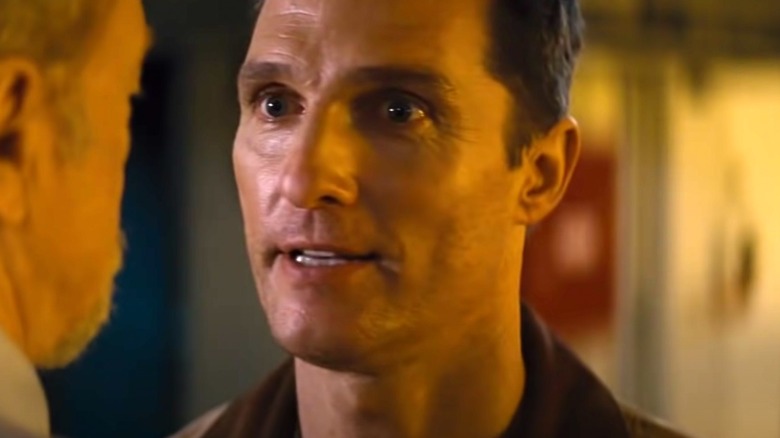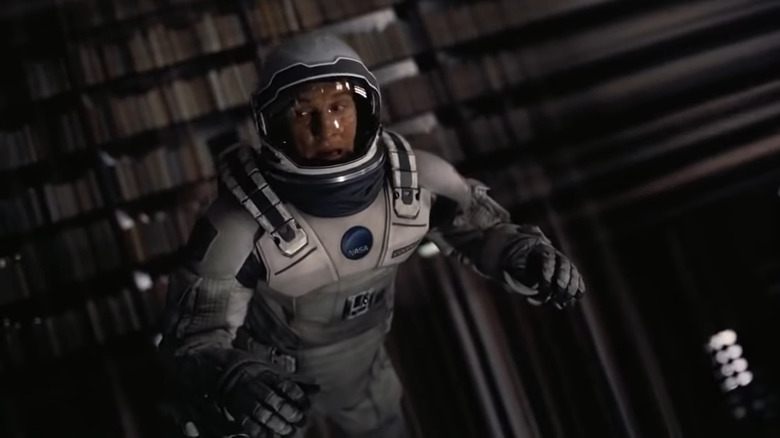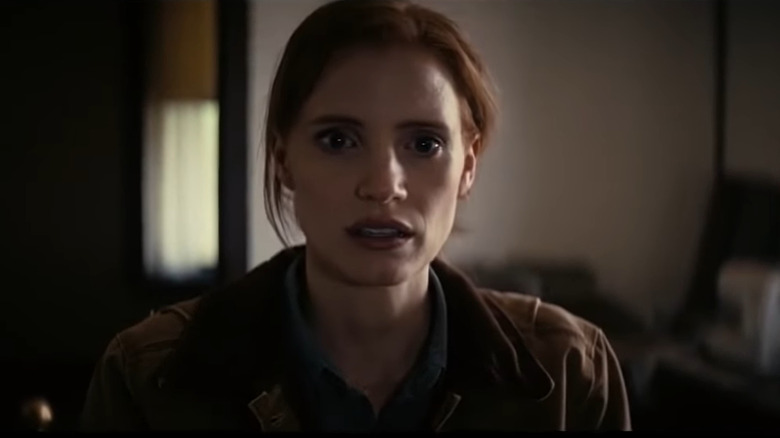The Interstellar Scene That Went Too Far
Christopher Nolan has been one of the biggest directors in Hollywood for two decades. Since "Memento" was released in 2000, he's reliably turned out major studio tentpoles every few years. His films have been collectively nominated for more than a dozen Academy Awards, five of which made Nolan himself a nominee (via IMDb). They also regularly become titans at the box office: five of his films have earned more than half a billion dollars worldwide each — two even making it past a billion (via BoxOfficePro).
Yet, Nolan has been a controversial director in the latter half of his career. Almost everything he's made post 2010's "Inception" has sparked some debate among fans. Whether its for the hard to hear dialogue and undecipherable plot of "Tenet" (via Deep Focus Review), the nearly dialogue-and-character-less "Dunkirk," or the rushed plotting and underwhelming conclusion of a beloved franchise with "The Dark Knight Rises," Nolan keeps fans talking — for better or worse.
However, one scene in his 2014 effort "Interstellar," about a team of astronauts led by Matthew McConaughey's Cooper attempting to find a new planet for the human species, rises above the pack as a moment where a large portion of audiences turned against the director.
Interstellar's big plot twist loses the audience
Throughout the first act of "Interstellar," Cooper's daughter Murph (played as a child by Mackenzie Foy; adult by Jessica Chastain) communicates with a ghost in her bedroom — one that sends books flying, makes drawings in sand, and spurs her and her father on their fantastic adventure.
In the denouement, Cooper ejects himself into a black hole. Instead of what should mean certain death, Cooper enters into a fifth dimension: time. However, time here is represented through a physical construction of his daughter's bedroom, where Cooper can simultaneously access and manipulate the literal gravity of any given moment in the room's existence. So, what does he do? He sends books flying, makes drawings in sand, and spurs himself and his daughter on a fantastic adventure, all from the unreachable (except through a black hole) side of his daughter's childhood bedroom's bookcase.
The scene is certainly a mind-bending moment that Christopher Nolan fans are used to, but the scene takes things a little too far by asking the audience to not only accept that Cooper won't die inside the heart of a black hole, but that he has been in control of the situation the entire film, and has been his daughter's "ghost." Cooper even purports that if he brought himself on this adventure, that means humans invented access to the fifth dimension and created the black hole, and because of his actions it is proven that love can be a tool that transcends time and space.
Fans call out the movie's plot contrivances
While the film made a killing at the box office, resonated with many critics and fans, and even won an Oscar (via IMDb), this scene frequently takes a bashing from just about everyone. Audiences were willing to sit through the three-hour adventure of mind-numbing visuals and sound design, complicated math and science, and the occasional too-serious monologue about love, but this moment broke many viewers' suspension of disbelief. "Interstellar" remains one of Nolan's worst-reviewed films, holding a barely-fresh 72% on Rotten Tomatoes.
Many of the negative user reviews on IMDb point towards this black hole scene as being the one that broke their faith in the movie. User preppy-3 wrote: "Any sort of statement they're trying to make on time and life is completely deadened by the script... the gaps in logic and plot holes here are very annoying. I lost track of how many times I rolled my eyes at the dubious 'logic' served up here."
The paradox this scene creates is made more infuriating by the incredible length the movie takes to even get to this point, as mentioned by user mgesticllama. To top it off, the love transcendence elements proved too much for user dandebs, who also questioned the choice of a bookcase as a tool versus "anything smart like a pen or something."


